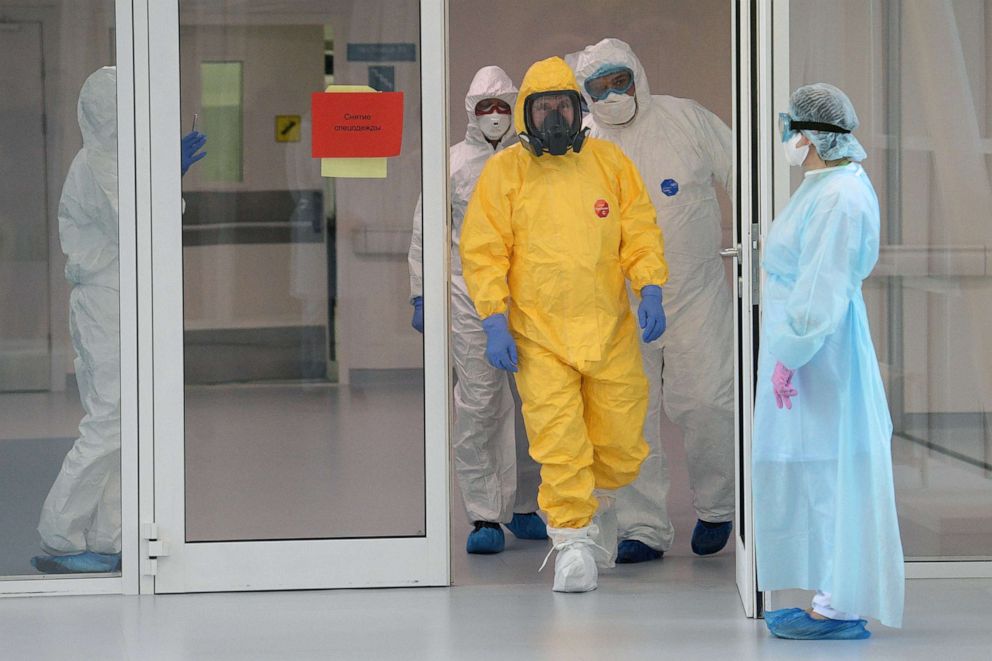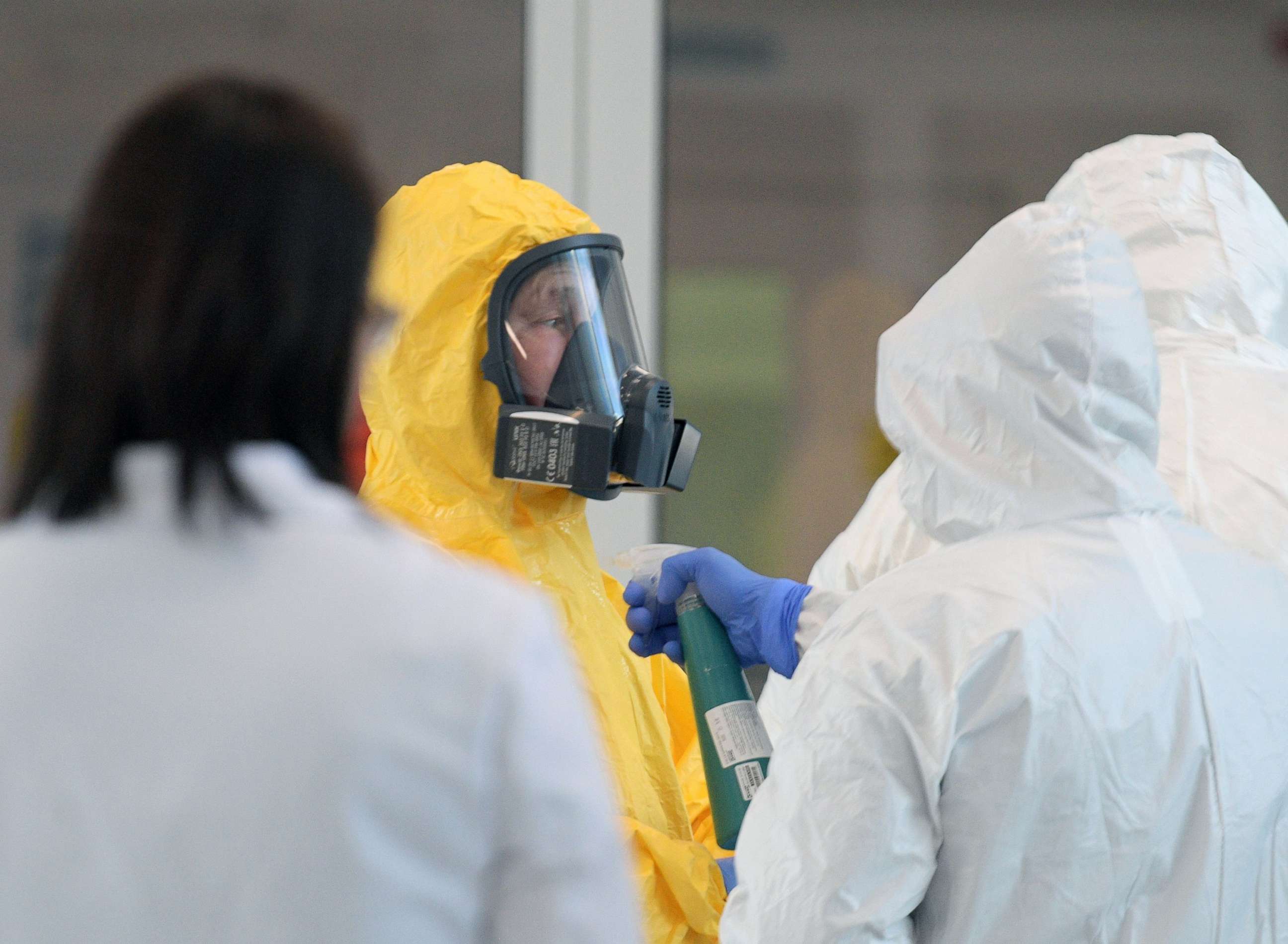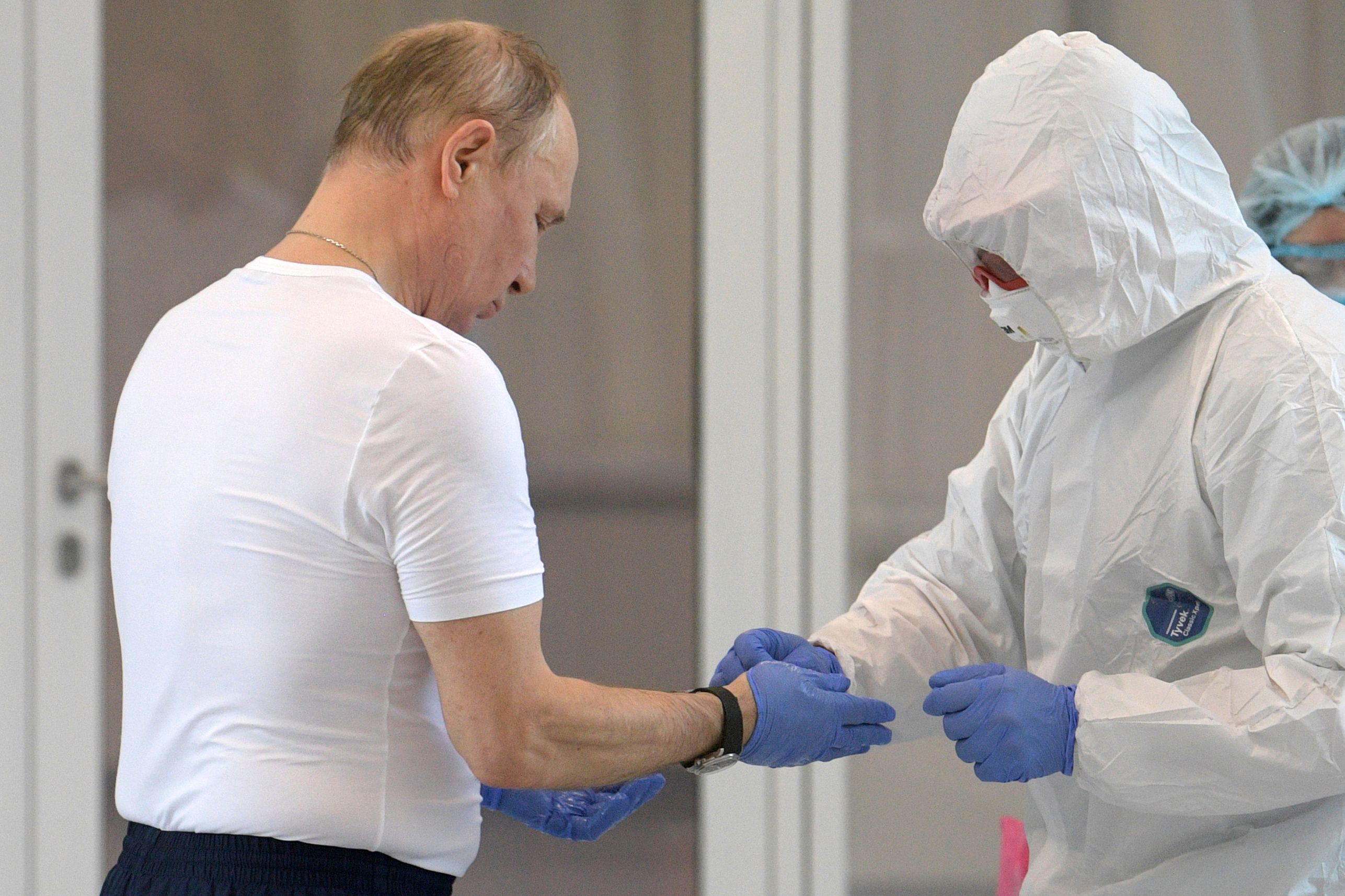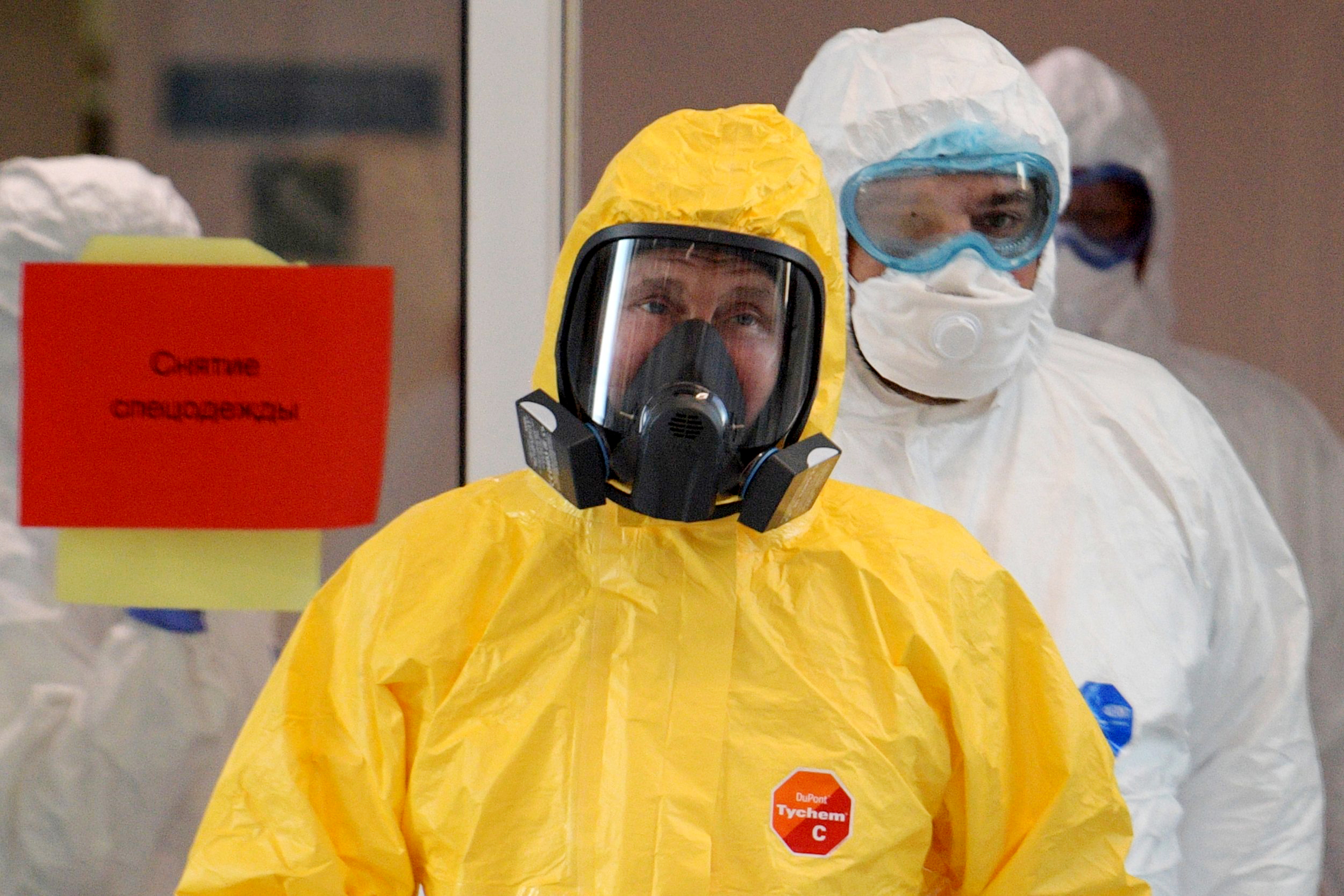Putin dons hazmat suit, as Russia admits virus numbers likely far higher
Experts found Russia's coronavirus numbers puzzling and some saw a cover-up.
Russia’s President Vladimir Putin donned a hazmat suit and breathing mask during a visit to a hospital housing coronavirus patients in Moscow on Tuesday, as the Russian government signalled the virus outbreak is becoming increasingly serious in the country.
Video aired on state media showed Putin being helped into the yellow suit by doctors at the Kommunarka infectious diseases hospital, which has been designated to treat coronavirus cases and where there are currently over 400 patients being treated for the illness.

The photo-op, which state television described as "spontaneous," came as Russian authorities for the first time acknowledged that the real number of novel coronavirus cases in Russia is likely significantly higher than the official figure.
In a televised meeting, Moscow’s mayor Sergey Sobyanin told him that a "serious situation is unfolding" in Russia and said that the official count of 495 cases was no longer providing the real picture.

"It doesn't matter. 400-500. The dynamic is high," Sobyanin told Putin. "Those who are in reality sick -- there is significantly more of them."
Russia’s official coronavirus numbers have been strange. The country has recorded significantly fewer cases than other major countries and until last weekend the official total was under 200. But what made Russia an outlier was its number of confirmed cases in proportion to the quantity of tests it was carrying out. Russia has conducted more tests than almost any country but only 0.3% of those tested showed positive -- the second-lowest ratio in the world.
That figure has puzzled experts and led critics -- and increasingly even pro-government officials -- to suggest the government’s numbers could not be accurate. It had sparked accusations of a cover-up, although no solid evidence had emerged to support that. Other experts have suggested Russia’s testing regime was perhaps inadequate.
Sobyanin acknowledged that on Tuesday, telling Putin that it was clear large numbers of people with the virus were being missed by testing.

"The thing is the volume of testing is very low, and the real picture ... no one in the world knows," Sobyanin said, saying the situation was similar to other countries where it is assumed there are many people more with the virus who are untested.
"That is the objective scenario. I’m not saying it’s good or bad. It’s objectively like that everywhere," he said, rebuffing an intervention from Russia's deputy prime minister Tatiana Golikova, who noted Russia has carried out 163,000 tests. "And so all regions -- irregardless of whether they have sick people, or not -- all of them need to get ready,” Sobyanin said.
He asked Putin to introduce quarantine measures in all major Russian cities, that would tell elderly people to remain at home and said that Moscow is urgently increasing its testing regime.
As in other countries Russia must now seek to flatten the peak of infections to prevent its hospitals being overwhelmed, Sobyanin told Putin. "Otherwise the system simply won’t handle it," he said.
The admission combined with Putin’s visit to the hospital seemed to signal a shift in approach by authorities in Russia, where officials and state media have largely tried to project a sense of business as usual. Although Russia rapidly closed its border with China early in the outbreak and has since barred all foreigners from entry, at-home measures have been less stringent, worried about the economic impact it could have. In Moscow, most restaurants and shops have been working as usual and although there has been some panic buying -- largely of buckwheat and pasta -- many Russians have appeared skeptical about the virus.
Last week, Moscow’s authorities told people over 65 to remain at home and said they would be paid around $50 if they complied. So far though, they have avoided imposing a strict lockdown, such as that in France and Italy, and now the United Kingdom. Putin, who is 67, has also maintained many of his own public meetings -- traveling to Crimea for the anniversary of its takeover by Russia, and proposing that a national vote on change to the constitution go ahead in April.
The situation in Russia, though, appears to be worsening, following a trajectory similar to those in big western European countries. In a sign of the scale of the epidemic authorities now fear, Sobyanin told Putin that Moscow hoped to have around 5,000 hospital beds ready for patients suffering from the virus within 3-4 weeks. He said he intended to ask federal authorities to provide 5,000 more.

Experts had expressed concern that Russia's testing program may have been too narrow, focused only on those returning from outbreak centers abroad. The Russian test itself also appears to be significantly less sensitive than those used elsewhere -- according to the president of the American Association for Clinical Chemistry, perhaps as much as 10-16 times less.
Some critics had accused the government of deliberately concealing the real numbers. Those concerns have been fuelled by figures from Russia's state statistics agency showing Moscow has experienced a 37% jump in pneumonia cases this January compared to last year. Anastasia Vasilyeva, who leads Alliance of Doctors, a group that campaigns on healthcare issues, and an ally of the opposition leader Alexey Navalny, has accused authorities of failing to provide medical staff with sufficient protective gear and hiding COVID-19 cases as pneumonia. Last week, she posted an audio recording she said was from a doctor at a Moscow hospital complaining 240 beds had already been set aside for patients with severe "pneumonia."




